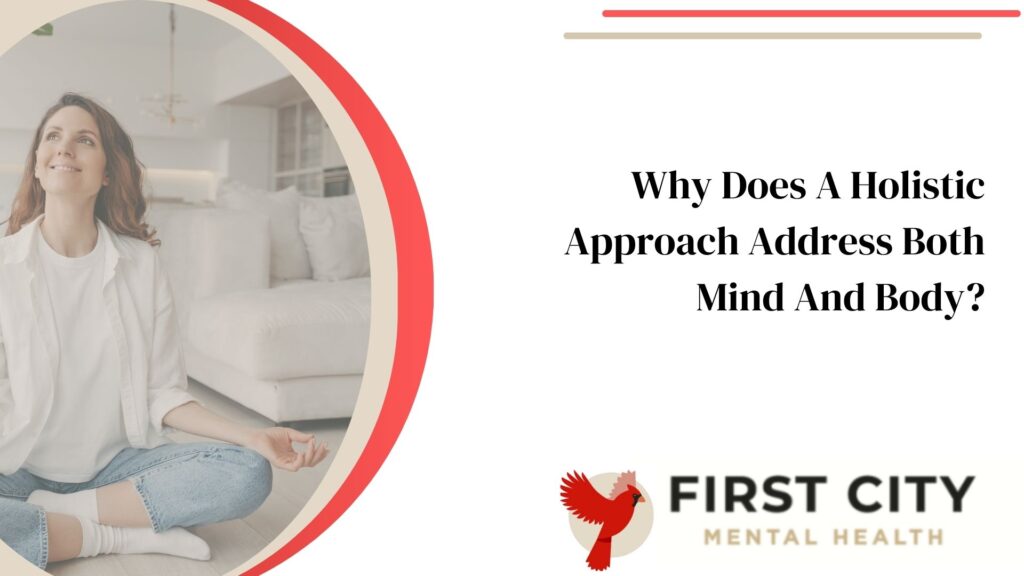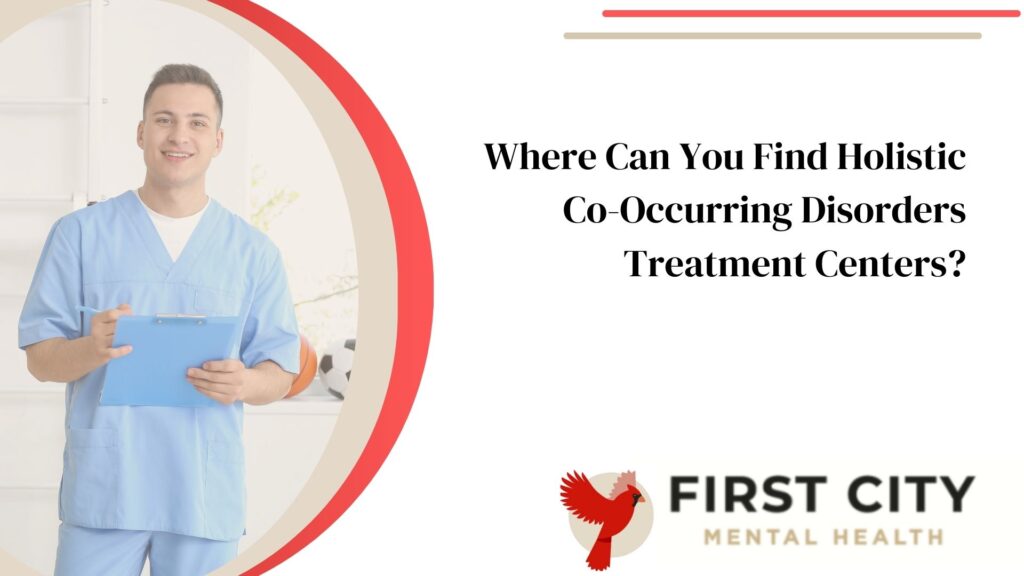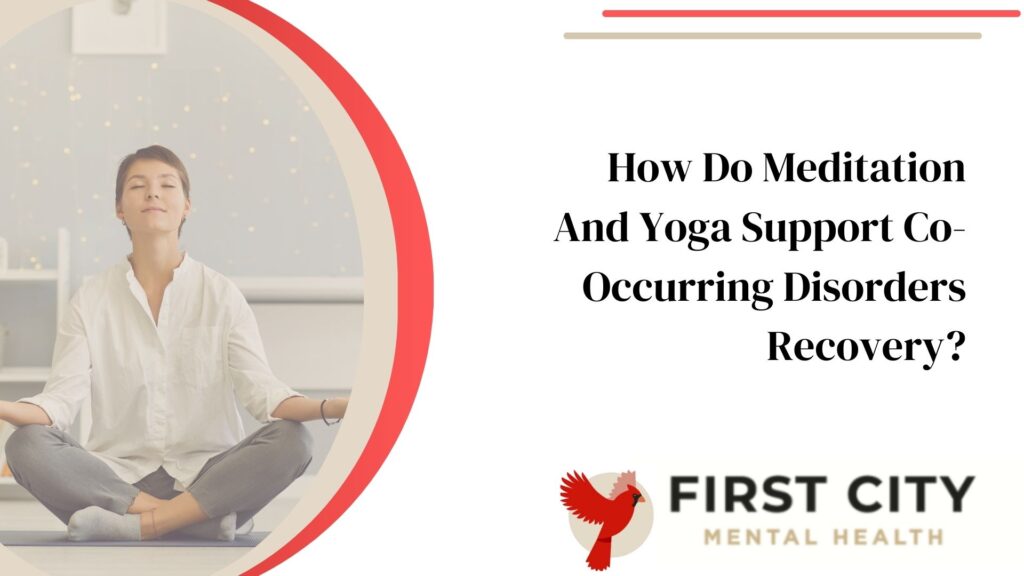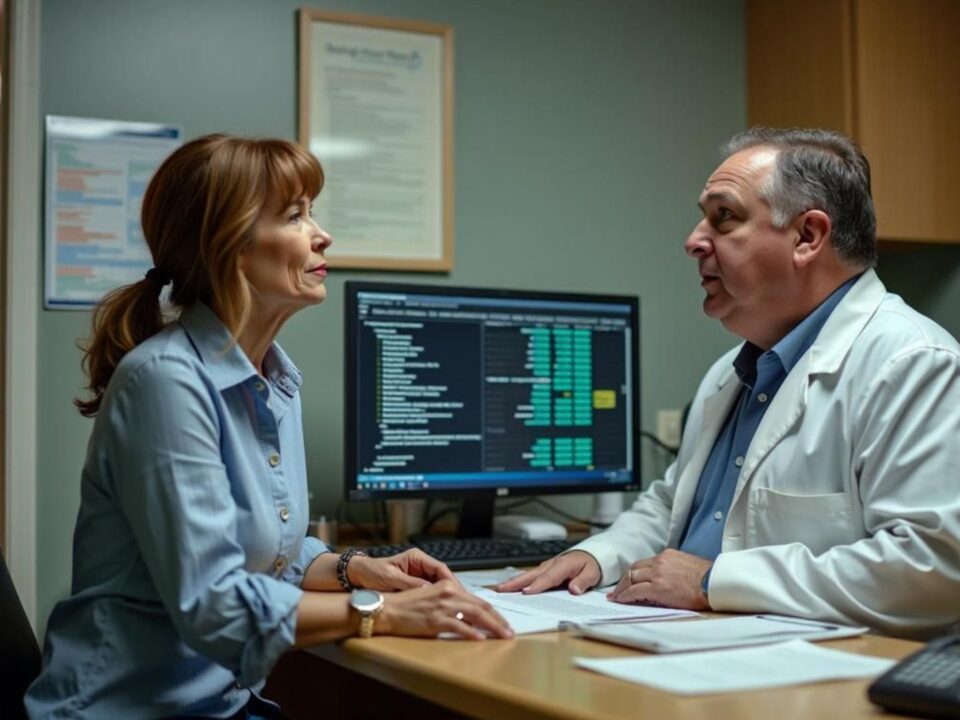
How Does Co-Occurring Disorders Treatment In Kokomo Support Long-Term Recovery?
January 21, 2025
How Long Does Treatment for Co-Occurring Disorders Typically Take?
January 21, 2025Dealing with both a mental health disorder and a substance use problem can feel overwhelming. This combination, known as co-occurring disorders, often makes everyday life tough to handle.
You might find traditional co-occurring disorders treatment don’t fully address the challenges you face.
A holistic approach in co-occurring disorders treatment takes care of both your mind and body. It means looking at all aspects of your well-being instead of just focusing on symptoms.
In this article, we will explain how a holistic approach can help you better manage your recovery. We’ll show why it’s worth considering for those struggling with dual diagnoses.
Keep reading to learn how this method could make a difference!
Key Takeaways
- Addresses Whole Person Holistic treatment looks after your mind, body, and spirit. This approach uses therapies like art therapy, yoga, and meditation along with traditional methods.
- Boosts Well-being Activities like exercise, healthy eating, and relaxation techniques improve overall health. They help manage symptoms of mental illnesses effectively.
- Supports Traditional Therapies Combining holistic care with standard treatments yields better results. It creates a personalized plan to meet individual needs.
What Is A Holistic Approach In Co-Occurring Disorders Treatment?
Holistic co-occurring disorders treatment Kokomo, Indiana focuses on the whole person. This means addressing physical, mental, emotional, and spiritual well-being. Treatment combines therapy, medication, lifestyle changes, and support groups to help both mental health and substance use disorders.
A holistic approach involves many types of therapies. These include art therapy, yoga, and meditation alongside traditional treatments. “Healing starts from within,” says Dr. Jane Smith of Co-Occurring Disorders Treatment Kokomo Indiana.
Personalized plans are crucial because each person’s needs differ greatly.
Why Does A Holistic Approach Address Both Mind And Body?

A holistic approach co occurring disorders treatment by considering both the mind and body. This method enhances well-being through mental and physical health. For example, yoga helps reduce stress while boosting physical fitness.
Meditation calms the mind, easing symptoms of anxiety and depression.
Integrated treatment for co-occurring disorders focuses on how different factors affect an individual. Addressing psychological issues alone isn’t enough; holistic care looks at lifestyle changes to improve overall health.
Personalizing a treatment plan ensures better outcomes in managing mental health conditions effectively.
How Does Holistic Care Complement Traditional Therapies?
Holistic care complements traditional therapies by addressing the whole person—mind, body, and spirit. Traditional treatments often focus on the immediate symptoms of co-occurring disorders.
In contrast, holistic approaches offer alternatives like yoga and meditation to support emotional well-being.
Combining both methods creates a personalized treatment plan customized to individual needs. Holistic care includes art therapy, which can help express feelings that are hard to talk about in regular therapy sessions.
This integrated treatment for co-occurring disorders services boost overall health and improve recovery outcomes for individuals seeking treatment for co-occurring disorders.
Where Can You Find Holistic Co-Occurring Disorders Treatment Centers?

Switching to a holistic approach tends to mesh well with traditional therapies. You might wonder where these treatment for co-occurring disorders are available.
Individuals can search online directories for co-occurring disorders treatment centers. They often list options that offer holistic care. It’s also smart to consult mental health services administration professionals.
They have insights into the best places catering to your needs for mental health disorders and substance use disorder.
Trusted recommendations play a big role too. Friends, family members, or healthcare providers can guide you in finding reputable holistic centers. These trusted sources often know of places offering comprehensive care for both mind and body.
When Is A Holistic Approach Most Effective In Recovery?
Holistic approaches shine when addressing the complexity of co-occurring disorders like bipolar disorder, OCD, and schizophrenia. They are particularly effective during longer treatment durations required for multiple conditions.
Incorporating methods such as art therapy and yoga can complement co-occurring disorders treatment centers treatments, making them more effective.
Personalized plans that include holistic methods lead to better wellness and improved symptom management. Focusing on underlying issues and promoting healthy lifestyle choices like exercise and good eating habits prove beneficial.
Comprehensive understanding of mental health diagnoses is crucial in making holistic approaches essential for recovery.
Why Are Lifestyle Changes Important In Holistic Treatment?
Lifestyle changes play a crucial role in holistic treatment. They address the root causes of co-occurring disorders and boost overall well-being. Self-care activities like exercise, healthy eating, and relaxation techniques help manage conditions such as anxiety, depression, and personality disorders.
Combining lifestyle modifications with traditional therapies offers comprehensive care. Support groups and alternative therapies also enrich this approach. These changes are vital for effectively handling co-occurring mental health and substance abuse issues in an adult co-occurring disorders treatment program.
What Role Does Nutrition Play In A Holistic Treatment Plan?
Nutrition plays a key role in holistic treatment for co-occurring disorders. It impacts both physical and mental well-being. A balanced diet boosts emotional stability and resilience, which are crucial for recovery.
Incorporating dietary interventions helps manage mental health symptoms more effectively.
Personalized nutrition plans support long-term health goals. They address the unique needs of individuals with co-occurring disorders. Comprehensive treatment integrates these strategies to improve overall wellness and foster better outcomes in traditional therapies.
Nutrition thus becomes vital in building a foundation for lasting recovery.
How Do Meditation And Yoga Support Co-Occurring Disorders Recovery?

Meditation and yoga play a key role in the recovery journey for those dealing with the treatment of co-occurring disorders. These practices offer both mental and physical benefits.
- Reduce Stress Meditation helps lower stress levels. It teaches people to focus on breathing and calm their minds.
- Improve Self-AwarenessBoth practices boost self-awareness. They allow individuals to better understand their thoughts and feelings.
- Manage Symptoms Yoga aids in managing anxiety, impulsivity, emotional swings, and mood changes.
- Support Emotional RegulationMeditation provides tools for better control over emotions. This reduces mood fluctuations during stressful times.
- Enhance Traditional Therapies Combining meditation and yoga with medication or talk therapy yields greater results. They complement traditional methods nicely.
- Promote Healthy Coping Mechanisms Practicing yoga offers healthier ways to cope with triggers and stressors compared to harmful habits.
- Foster a Sense of Community Group classes create a sense of belonging among participants, giving them peer support in their recovery process.
- Increase Overall Well-Being Regular practice boosts overall well-being by promoting relaxation and physical health.
Final Thoughts
Adopting a holistic approach to co-occurring disorders treatment program can change lives. This method treats both mind and body, offering lasting benefits. It also supports traditional therapies, making recovery more effective.
Simple lifestyle changes and good nutrition can boost your health. So why wait? A holistic path could be the key to a happier, healthier you.
FAQs
What is a holistic approach in co-occurring disorders treatment?
A holistic approach in treating co-occurring disorders looks at the whole person, not just their symptoms. It includes mental health care, addiction therapy, and lifestyle changes.
Why choose a holistic method for co-occurring disorders treatment?
Choosing a holistic method helps address both mental health issues and substance use problems together. This comprehensive strategy can lead to better outcomes.
How does a holistic approach differ from traditional treatments for co-occurring disorders?
Traditional treatments often focus on one issue at a time—either mental health or addiction. A holistic approach treats both simultaneously, considering physical, emotional, and social factors.
Can anyone benefit from this type of treatment for co-occurring disorders?
Yes! Many people find that addressing all aspects of their life through a holistic plan makes recovery more achievable and sustainable over time.






